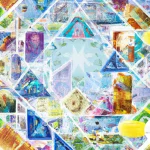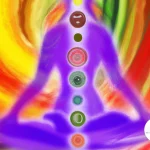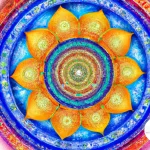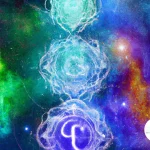About the Origins and Evolution of Numerology Through History Have you ever wondered about the mysterious origins and fascinating history of numerology? This ancient practice, rooted in the belief that numbers hold deep symbolism and spiritual significance, has captivated cultures and civilizations for centuries. From the ancient civilizations of Egypt, Mayans, China, and India, to the profound influence of Pythagoras in Western history, and the connections with Eastern philosophy, numerology has evolved and adapted throughout time. In this article, we will delve into the rich tapestry of numerology, exploring its historical roots, its influence on different cultures, and its relevance in today’s modern world. Join us on this journey of discovery and unlock the ancient wisdom that numbers hold.
The Ancient Roots of Numerology
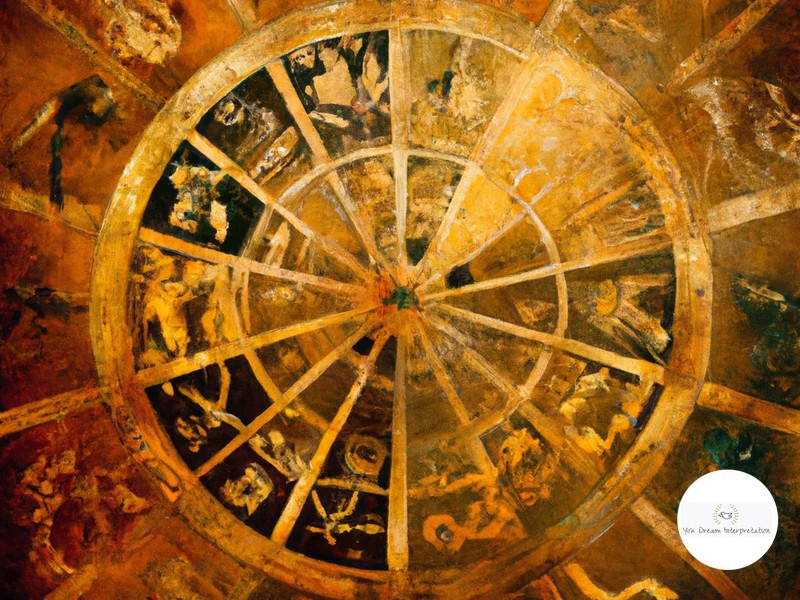
The Ancient Roots of Numerology can be traced back to the earliest civilizations, where ancient cultures recognized the inherent power and symbolism of numbers. These early civilizations believed that numbers held mystical significance and were deeply connected to the fabric of the universe. The Babylonians, for example, were among the first to develop a system of numerology, using numbers to interpret divine messages and predict future events. The ancient Greeks also played a significant role in the development of numerology, particularly through the teachings of the renowned mathematician Pythagoras. Pythagoras believed that numbers were the building blocks of the universe and that they had a profound influence on human life and destiny. His theories laid the foundation for the numerological concepts that are still used today. In ancient Mesopotamia, the Chaldeans developed a numerological system based on the vibrations of the planets and their influence on an individual’s life. Numerology in these ancient civilizations was primarily used for divination, gaining insight into the purpose of life, and understanding the interconnectedness of the natural world. The use of numbers to unravel the mysteries of existence has persisted throughout history and continues to be a fascinating area of study and exploration today.
Numerology in Ancient Civilizations
In ancient civilizations, numerology held a prominent place, as different cultures around the world recognized the profound significance of numbers. Let’s explore some of the fascinating ancient civilizations and their unique approaches to numerology:
1. Egyptian Numerology: The ancient Egyptians believed that numbers held divine qualities, with each number carrying its own symbolism and spiritual meaning. Numerology played a crucial role in Egyptian astrology and was used to decipher cosmic forces and understand an individual’s destiny.
2. Mayan Numerology: The Mayans developed an intricate numerological system that combined mathematics, astronomy, and spirituality. They believed that each number represented a specific energy or deity, and by understanding these energies, they could predict the future and make important decisions.
3. Chinese Numerology: Chinese numerology, also known as “Ba Zi,” is deeply rooted in the ancient philosophy of Taoism. It focuses on the interaction between the Five Elements (Wood, Fire, Earth, Metal, and Water) and the Eight Trigrams of the I Ching. Chinese numerology is widely used for auspicious dates, naming ceremonies, and determining compatibility in relationships.
4. Indian Numerology: In ancient India, numerology held a special place in Vedic astrology. Known as “Jyotish Shastra,” it encompasses the study of numbers and their vibrations to gain insights into one’s personality traits, life path, and overall destiny. Numerology is used alongside other astrological systems to provide a comprehensive understanding of an individual’s cosmic blueprint.
These ancient civilizations paved the way for the development of numerology as we know it today, with its diverse applications ranging from predicting future events and understanding human characteristics to exploring compatibility and hidden talents. By understanding the origins of numerology in ancient civilizations, we can appreciate the rich tapestry of knowledge that has been passed down through the ages.
Egyptian Numerology
Egyptian Numerology holds a significant place in the origins of numerology, as the ancient Egyptians assigned deep meaning and symbolism to numbers. The Egyptians believed that numbers represented the divine order and structure of the universe, and that by understanding these numbers, they could gain insight into the spiritual and earthly realms. One of the core practices of Egyptian Numerology was the interpretation of an individual’s birthdate and name. Each letter of the Egyptian alphabet was assigned a specific numerical value, and these values were added together to determine a person’s overall numerical energy. This energy was believed to reflect their personality traits, strengths, and weaknesses. Additionally, the ancient Egyptians used numerology to establish harmony and balance in various aspects of life, including architecture, agriculture, and even the construction of pyramids. Through the alignment of numerical patterns and ratios, they sought to create a harmonious connection between the earthly and divine realms. The knowledge and wisdom of Egyptian Numerology continue to intrigue and inspire numerologists today, as we seek to unlock the hidden meanings and secrets held within the realm of numbers. For those interested in exploring their own numerological significance, understanding their hidden talents and innate abilities based on their birthdate, can provide valuable insights into their life’s path.
Mayan Numerology
Mayan Numerology offers a unique and fascinating perspective on the ancient practice of numerology. The Mayans, an ancient Mesoamerican civilization known for their advanced understanding of mathematics and astronomy, believed that numbers held great spiritual and cosmic significance. They developed a sophisticated numerological system that integrated their understanding of the natural world with the spiritual realm. In Mayan numerology, each number was associated with specific qualities and meanings. For example, the number one represented unity and the beginning of all things, while the number thirteen symbolized transformation and spiritual growth. The Mayans used numerology to interpret the cycles of time, understand human personalities, and even predict future events. They believed that understanding the energetic vibrations and spiritual implications of numbers could provide insight into one’s purpose in life. Today, many people still find value in Mayan numerology, using it as a tool for self-discovery, understanding relationships, and navigating life’s challenges. If you’re curious to explore the intriguing world of , you can uncover hidden talents and potential within yourself by calculating your birthdate numerology and discovering the unique energies associated with your life path number.
Chinese Numerology
Chinese Numerology is deeply rooted in ancient Chinese culture and has been practiced for thousands of years. The Chinese believe that numbers possess specific vibrations and energies that can influence various aspects of life. One of the most prominent systems in Chinese numerology is the Nine Star Ki, also known as the Nine Grid Chart. This system divides individuals into nine different energy types, each associated with a specific element and trigram. These energy types are determined by an individual’s birth year, month, and day. The Chinese also place great importance on the number 8 due to its pronunciation, which sounds similar to the word for “prosper” or “wealth” in Chinese. As a result, the number 8 is considered extremely auspicious and is often associated with financial success and good fortune. On the other hand, the number 4 is considered unlucky as its pronunciation is similar to the word for “death” in Chinese. It is often avoided in Chinese culture. Chinese Numerology is used in various aspects of life, such as determining auspicious dates for important events like weddings or business openings, selecting lucky numbers for phone numbers or license plates, and even in the design of buildings. Consulting a Chinese numerology expert or using online tools can provide individuals with valuable insights into their personalities, compatibility with others, and guidance for important life decisions. Understanding the intricacies of Chinese numerology allows individuals to tap into the ancient wisdom and cultural beliefs that have shaped this fascinating practice.
Indian Numerology
Indian Numerology is a fascinating branch of numerology that has deep roots in ancient Indian traditions and philosophies. Known as “Vedic numerology,” it draws heavily from the Vedic texts, which are sacred scriptures of Hinduism. In Indian numerology, each number is assigned a specific vibration and meaning, and these numbers are believed to have a profound influence on a person’s life and destiny. One key aspect of Indian numerology is the concept of the “life path number,” which is calculated based on an individual’s date of birth. This number is believed to reveal important insights into a person’s character, strengths, and challenges they may face in life. Indian numerology also utilizes the power of “yantras,” which are geometric diagrams representing different aspects of the universe. These yantras are believed to attract positive energy and enhance the influence of specific numbers in a person’s life. Through Indian numerology, individuals can gain a deeper understanding of themselves, their relationships, and their spiritual journey. By exploring the vibrations and meanings associated with different numbers, one can unlock valuable insights and guidance on their path of self-discovery and personal growth. Whether you are interested in exploring the energy compatibility of numbers or calculating your life path number, Indian numerology offers a profound and enlightening perspective.
Numerology in Western History
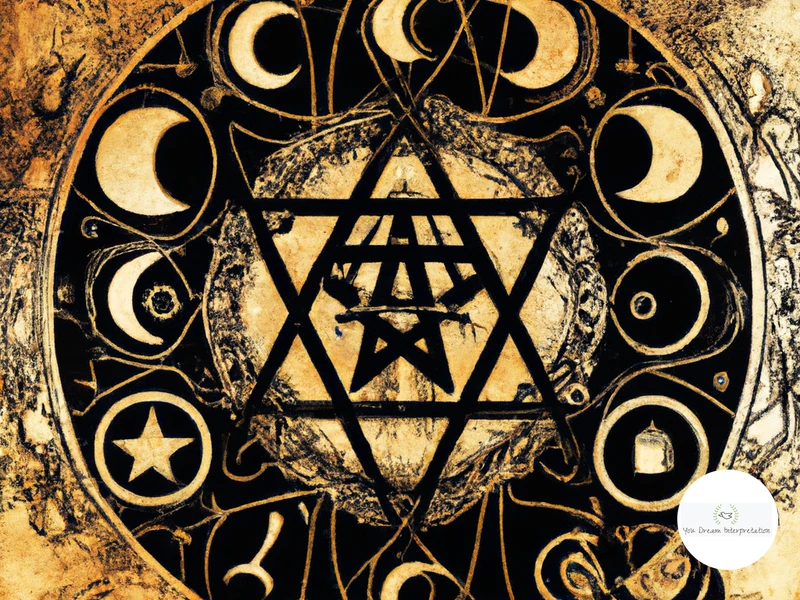
In Numerology in Western History, we witness the enduring influence and evolution of this mystical practice. One of the key figures in Western numerology is the ancient Greek philosopher Pythagoras, who believed that numbers held great significance and were the very essence of reality. Pythagoras and his followers developed a system that assigned numerical values to letters, known as the Pythagorean numerology system. This system was used to uncover hidden meanings in names, words, and even events. During the Middle Ages and Renaissance, numerology continued to flourish, with scholars delving into the connections between numbers, astrology, and divine truths. In more recent times, numerology has taken on new interpretations and applications, drawing from various cultural traditions and modern beliefs. Today, many people still turn to numerology to gain insights into their personalities, relationships, and life paths. Whether it’s exploring the compatibility of energy numbers or calculating your life path number, numerology offers a lens through which we can better understand ourselves and the world around us.
The Influence of Pythagoras
The Influence of Pythagoras cannot be overstated when it comes to the development and popularization of numerology in Western history. Pythagoras, a Greek philosopher, mathematician, and mystic, is often referred to as the “Father of Numerology.” He believed that numbers were not merely symbols but held innate qualities and vibrations that could provide profound insight into the human experience. Pythagoras and his followers believed that everything in the universe could be represented and understood through numbers. They developed the concept of the “Pythagorean numerology system,” which assigned numerical values to letters of the alphabet and used these values to decipher the hidden meanings of words and names. Pythagoras also proposed the idea of the “life path number,” which is calculated using a person’s birthdate and represents their inherent qualities, strengths, and life purpose. This concept is still widely used in numerology today, and individuals often seek to calculate their life path number to gain a deeper understanding of their personal journey. The influence of Pythagoras extended beyond numerology, as his teachings also had a significant impact on various fields of study, including mathematics, music, and philosophy. Pythagoras’s belief in the inherent power of numbers continues to inspire and shape the practice of numerology today. Through his contributions, numerology became a respected and valued tool for self-discovery, personal growth, and spiritual enlightenment. /calculate-life-path-number-numerology/
Middle Ages and Renaissance
Middle Ages and Renaissance During the Middle Ages and Renaissance, numerology experienced a renewed interest and underwent significant developments. It was during this time that influential scholars and philosophers sought to integrate numerological principles with religious and philosophical beliefs. The mysticism and symbolism associated with numbers intertwined with the spiritual and esoteric practices of the time. Many scholars believed that numbers held hidden meanings, connecting the physical and spiritual realms. The work of prominent figures like Marsilio Ficino, a leading Renaissance philosopher, contributed to the integration of numerology into the fields of astrology, alchemy, and other mystical practices. Ficino believed that certain numbers corresponded to specific celestial influences, and understanding these connections was crucial for unlocking the mysteries of the universe. Numerologists in the Middle Ages and Renaissance saw numbers as a way to communicate with the divine and gain insight into the human condition. With the advent of the printing press, numerological texts became more widely available, leading to increased interest and exploration of numerological concepts. The Middle Ages and Renaissance marked a period of great experimentation and innovation in the field of numerology, laying the groundwork for its development in subsequent centuries. To this day, the influence of Middle Ages and Renaissance on numerology can be seen, as it continues to captivate and intrigue those who seek to understand the mystical power of numbers.
Modern Interpretations
Modern Interpretations of numerology have taken on various forms and have adapted to the changing cultural landscape. As society has shifted towards a more individualistic and self-aware approach, numerology has found new applications and interpretations. Today, numerologists analyze and interpret numbers to gain insights into personality traits, life purpose, and compatibility. The focus has shifted from divination and predicting the future to self-reflection and personal growth. One popular modern interpretation of numerology is the calculation of a person’s Life Path Number, which is derived from their birthdate. This number is believed to provide insight into an individual’s strengths, weaknesses, and life purpose. It serves as a guide for self-discovery and personal development. Another modern application of numerology is exploring energy compatibility numbers, which determine the compatibility between individuals based on their numerological profiles. By comparing the vibrations and energies associated with different numbers, numerologists can assess the compatibility and potential for harmonious relationships. This approach has gained popularity in romance and friendships as a way to understand the dynamics and potential challenges within these relationships. With the proliferation of online numerology resources and tools, individuals can now explore and interpret their numerological profiles in a more accessible manner. Whether it’s gaining self-awareness, finding compatibility, or simply satisfying curiosity, modern interpretations of numerology offer a unique perspective into the mysteries of numbers and their influence on our lives. Exploring energy compatibility numbers can be a fascinating journey for anyone seeking to understand the dynamics of their relationships on a deeper level.
Numerology in Eastern Philosophy
Eastern philosophy has long embraced the concepts and principles of numerology, recognizing the profound influence of numbers on spirituality and personal growth. Connection with Taoism and Buddhism has been particularly significant in shaping the numerological practices in the East. In Taoism, numbers are seen as a way to understand the natural flow of the universe and the balance of Yin and Yang energies. Numerology is utilized as a tool to align oneself with the rhythm of the cosmos and to find harmony within. Buddhism, on the other hand, incorporates numerology as a means of self-discovery and enlightenment. Various numerical calculations, such as the Life Path number, are used to gain insights into one’s karmic patterns and spiritual path. Japanese and Korean Numerology have their own unique interpretations, focusing on aspects like personal destiny, compatibility, and the energy of names. In Japan, the practice of “Onmyodo” combines astrology and numerology to guide individuals in making important life decisions. In Korea, “Saju” examines the cosmic energies at the time of a person’s birth to understand their character and destiny. Other Eastern traditions such as Hinduism and Chinese philosophy also incorporate numerology in various aspects of life, including naming practices, astrology, and divination. The rich tapestry of Eastern philosophy intertwines numerology with the pursuit of spirituality and self-realization, offering profound insights into the nature of existence.
Connection with Taoism and Buddhism
Numerology also found its place within the realms of Taoism and Buddhism, two major philosophical and spiritual traditions in Eastern philosophy. In Taoism, numbers are seen as symbols of cosmic forces and energies. The Taoist belief in the harmony of the universe is reflected in their use of numerology to understand and align with these cosmic forces. Numbers such as 3, 5, and 8 are considered auspicious and embody different aspects of the Taoist principles. For example, the number 3 represents the three treasures of Taoism: compassion, frugality, and humility. By understanding the meaning behind each number, practitioners can apply these principles to their lives and seek balance and harmony. In Buddhism, numerology is intertwined with the concept of karma and the cycle of rebirth. The ancient Buddhist scripture, the “Lotus Sutra,” contains numerical symbolism that is believed to have profound spiritual significance. For instance, the number 3 represents the Three Jewels of Buddhism: the Buddha, the Dharma (teachings), and the Sangha (community of practitioners). By understanding the significance of these numbers, Buddhists seek to deepen their spiritual practice and cultivate positive karmic outcomes. The connection between numerology and these Eastern philosophies reveals the profound relationship between numbers, spirituality, and personal growth.
Japanese and Korean Numerology
Japanese and Korean Numerology have their own unique interpretations and practices when it comes to the mystical significance of numbers. In Japan, numerology is known as “Onmyodo” or “The Way of Yin and Yang,” which is deeply rooted in Taoist beliefs. Onmyodo practitioners use a system called “Kanazukai,” which involves assigning specific meanings to each stroke of a person’s name or character. By analyzing the strokes and their corresponding numbers, they can gain insights into a person’s character, destiny, and compatibility with others. The numbers associated with strokes can impact various aspects of life, such as relationships, career, and health. Korean numerology, on the other hand, is known as “Samjae,” which means “Three Elements.” It is based on the fundamental principles of Heaven, Earth, and Humanity. Samjae numerology assigns specific numerical values to the strokes of each character in a person’s name, which are then used to determine their destiny and personal characteristics. This form of numerology is often consulted for naming children, business ventures, and even in marriage compatibility assessments. Both Japanese and Korean numerology highlight the deep cultural and spiritual connections that numbers hold in these respective societies, offering unique insights into the individuals who seek guidance from these systems.
Other Eastern Traditions
Aside from Taoism and Buddhism, there are several other Eastern traditions that incorporate numerology into their belief systems. One such tradition is the ancient practice of Feng Shui, which originated in China. Feng Shui emphasizes the arrangement of objects and spaces to harmonize with the flow of energy, known as Qi. Numerology plays a crucial role in Feng Shui, as practitioners believe that specific numbers hold auspicious or inauspicious meanings. For instance, the number eight is considered extremely lucky in Chinese culture because its pronunciation, “ba,” sounds similar to the word for wealth. On the other hand, the number four is associated with bad luck because its pronunciation is similar to the word for death. Another Eastern tradition that incorporates numerology is Japanese Onmyodo, a belief system that emerged during the Heian period. Onmyodo combines divination, astrology, and geomancy with numerology to provide guidance and insight into various aspects of life, such as love, career, and health. In Korean culture, the practice of Saju, also known as Four Pillars of Destiny, is deeply rooted in numerology. Saju practitioners believe that a person’s life is determined by the combinations of their birth year, month, day, and hour, each associated with specific elements, directions, and numbers. These Eastern traditions showcase the diversity and widespread influence of numerology throughout different cultures in the Eastern world, contributing to its rich tapestry of beliefs and interpretations.
Modern Numerology Systems
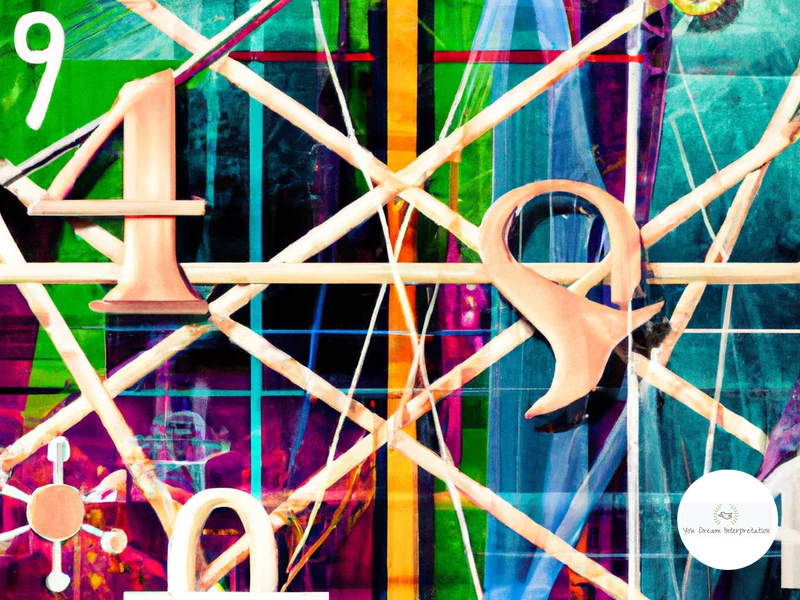
Modern Numerology Systems have evolved over time, combining ancient wisdom with new interpretations and approaches. One influential figure in the development of modern numerology was Dr. Julian Stenton, who introduced the concept of “life path numbers” and their significance in understanding an individual’s purpose and path in life. Another notable pioneer is Cheiro, a renowned numerologist who popularized the use of numerology for character analysis and prediction based on a person’s name and birthdate. Today, there are various popular numerology systems, such as the Pythagorean system and Chaldean system, each with its own unique interpretations and calculations. These systems consider factors like birthdates, names, and even the vibrations of individual letters. Numerology is now used not only for personal insights and self-discovery but also as a tool in fields like astrology, spirituality, and even business. It serves as a means to explore the deeper layers of our existence, decode the patterns of the universe, and gain a better understanding of ourselves and our place in the world.
The Influence of Numerology Pioneers
The Influence of Numerology Pioneers has played a crucial role in shaping the modern understanding and practice of numerology. Throughout history, there have been individuals who have dedicated their lives to studying and advancing this ancient art form. Pythagoras, the Greek philosopher, mathematician, and spiritual leader, is considered one of the most influential pioneers of numerology. He believed that numbers held a deep significance and that they could reveal hidden truths about the universe and human existence. Pythagoras developed a system known as Pythagorean numerology, which assigned specific meanings and characteristics to numbers based on their vibrations and relationships. His teachings laid the groundwork for many of the numerological concepts that are still used today.
Another significant figure in the evolution of numerology is Dr. Julian Stenton, a British numerologist known for his research and writings on the subject. Stenton’s work expanded and refined the existing numerology systems, introducing new ideas and interpretations. He emphasized the importance of the birth date in calculating key numerological values, such as the Life Path number and Destiny number.
Cheiro, a renowned Irish astrologer and palmist, also made significant contributions to numerology. He popularized the concept of using a person’s name to calculate their numerological profile. Cheiro believed that the vibrations of letters in a person’s name held valuable insights into their character, personality, and life path.
These pioneers and many others have laid the foundation for the diverse numerology systems and interpretations that we have today. Their contributions have not only deepened our understanding of numbers and their symbolism, but also expanded the applications of numerology to various aspects of life, including personal growth, relationships, and even business strategies. Their influence continues to inspire and guide numerologists and enthusiasts around the world as they explore the fascinating world of numbers and their profound impact on our lives.
Popular Numerology Systems Today
Popular Numerology Systems Today encompass a variety of methods and approaches that are widely used for personal insights, self-discovery, and life guidance. One of the most popular systems is the Pythagorean Numerology. This system assigns numerical values to each letter of the alphabet and uses these values to calculate various aspects of a person’s life, such as their Life Path Number, Destiny Number, and Soul Urge Number. Pythagorean Numerology follows the principles established by Pythagoras and is based on the belief that numbers hold inherent qualities and vibrations that can provide valuable insights into an individual’s character and life path. Another widely recognized system is the Chaldean Numerology, which originated in ancient Babylonia. Chaldean Numerology assigns different numerical values to the letters based on their sound frequencies. This system is highly regarded for its accuracy and is often used in analyzing names and compatibility between individuals. Additionally, the Angel Numbers system has gained significant popularity in recent years. It involves interpreting repetitive number sequences, believed to be messages from guardian angels. These sequences can be seen on clocks, license plates, or other daily encounters. Understanding the meanings behind these numbers can offer guidance and reassurance. Lastly, Vedic Numerology is commonly practiced in India, deriving its roots from ancient Vedic traditions. It places great emphasis on the association between numbers and the cosmic vibrations they represent. Vedic Numerology can provide insights into various aspects of an individual’s life, including relationships, career paths, and personal growth. These are just a few examples of the various numerology systems that are popularly used in contemporary society, each offering its unique approach to deciphering the mysteries and significance of numbers in our lives.
Applications of Numerology
Applications of Numerology Numerology offers a plethora of practical applications that have intrigued and benefitted individuals across different cultures and time periods. The interpretation of numbers and their vibrations can be applied to various aspects of life, including personal growth, relationships, career choices, and even health. One common application of numerology is calculating life path numbers, which reveal a person’s inherent qualities, talents, and challenges. By understanding their life path number, individuals can gain insight into their purpose and make informed decisions aligned with their true nature. Numerology can also be utilized to explore energy compatibility between individuals through the analysis of numerology charts. This helps in determining the harmonious or challenging aspects of relationships, allowing individuals to create more fulfilling connections. Additionally, numerology can aid in identifying hidden talents by analyzing specific numbers associated with an individual’s birthdate. This knowledge can be used to unlock untapped potential and pursue a career or hobby that aligns with one’s innate abilities. From personal development to making insightful decisions, numerology provides practical tools for self-discovery and growth. Its versatility and applicability continue to make it a valuable resource for those seeking a deeper understanding of themselves and their interactions with the world around them.
Conclusion
Conclusion Numerology has a rich and diverse history that spans across ancient civilizations and continues to thrive in modern times. From its ancient roots in Mesopotamia, Egypt, China, and India, numerology has evolved and adapted through the influence of prominent figures such as Pythagoras in Western history. It has also found its place in Eastern philosophy, where it is deeply connected to Taoism and Buddhism. Today, numerous numerology systems are practiced worldwide, each with its own unique interpretations and applications. Whether it is finding hidden talents through birthdate numerology, exploring energy compatibility numbers, or calculating one’s life path number, numerology offers individuals a fascinating way to understand themselves and their place in the universe. As we conclude this exploration of the origins and evolution of numerology, it is clear that numbers hold a profound significance that transcends time and culture. So why not delve into the world of numerology and unlock the hidden secrets that numbers hold?
Frequently Asked Questions
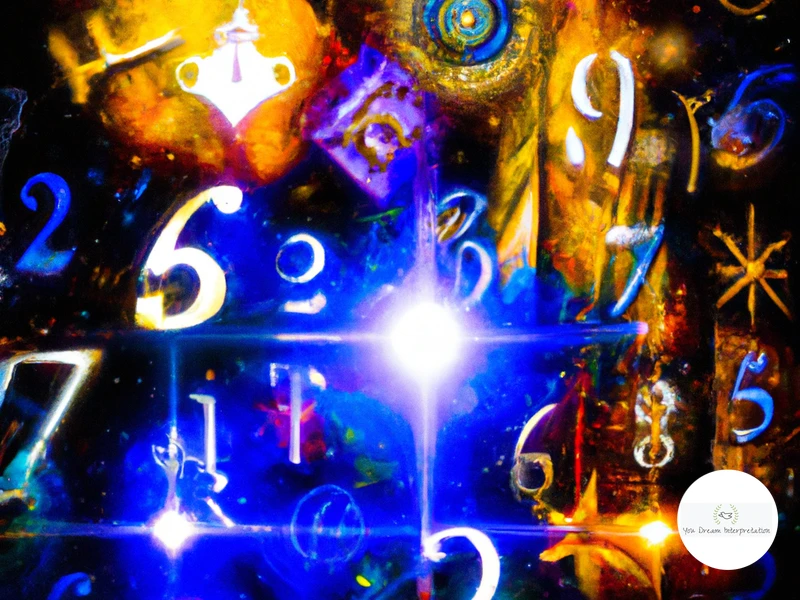
What is Numerology?
Numerology is a mystical practice that assigns meanings to numbers and their vibrations. It is based on the belief that numbers have symbolic significance and can provide insights into various aspects of life.
How old is Numerology?
The origins of numerology can be traced back thousands of years to ancient civilizations like Babylon, Greece, and Egypt. These cultures recognized the power and importance of numbers in understanding the world around them.
What is the significance of numbers in Numerology?
In numerology, each number carries a unique vibration and symbolism. These numbers can be used to gain insights into personality traits, life paths, relationships, and even future events. They are believed to hold profound spiritual and energetic meanings.
What is a Life Path Number?
A Life Path Number is one of the most important numbers in numerology. It is calculated using a person’s birthdate and represents their life’s purpose and the challenges they may face. It can provide valuable insights into an individual’s strengths, weaknesses, and overall destiny.
Can numerology predict the future?
Numerology is not about predicting the future with certainty. Instead, it offers guidance and insights based on the vibrations and patterns associated with numbers. It can help individuals make informed decisions or gain a deeper understanding of their life’s journey.
Are there different numerology systems?
Yes, there are various numerology systems, including the Pythagorean system, the Chaldean system, and the Chinese numerology system. Each system has its own unique approach and interpretations, making numerology a diverse and multi-dimensional practice.
Can numerology help in relationships?
Numerology can provide insights into the compatibility between individuals based on their life path numbers or other numerological calculations. It can help identify strengths and challenges within relationships, providing a greater understanding of dynamics and potential areas of growth.
Is numerology considered a science or a pseudoscience?
Numerology is not considered a scientific discipline but falls into the realm of metaphysics and esoteric knowledge. While it may not have empirical evidence to support its claims, it has been embraced and practiced by many cultures throughout history.
How can I calculate my Life Path Number?
To calculate your Life Path Number, you need to add up the digits of your birthdate and reduce it to a single digit. For example, if you were born on May 20, 1990, you would add 5 + 2 + 0 + 1 + 9 + 9 + 0, which equals 26. Then, add the two digits of 26 together (2 + 6), resulting in a Life Path Number of 8.
Can numerology help me tap into my hidden talents?
Yes, numerology can offer insights into your hidden talents and potential. By understanding the vibrations associated with certain numbers, you can identify your strengths and areas where you may have untapped abilities. Numerology can serve as a tool for self-discovery and personal growth.
References
Frequently Asked Questions

1. How far back does the history of numerology go?
The history of numerology can be traced back thousands of years, with its roots found in ancient civilizations such as Egypt, Mesopotamia, and China.
2. What is the significance of numbers in Egyptian numerology?
Numbers held great significance in ancient Egyptian culture, where they were believed to represent cosmic forces and divine elements in the universe.
3. How did Mayans utilize numerology in their civilization?
The Mayans used numerology as a way to understand the universe and predict future events. They believed that numbers had symbolic meanings and influenced various aspects of life.
4. What role did numerology play in Chinese culture?
Numerology played a significant role in Chinese culture, where it was used to determine auspicious dates for events, understand personal characteristics, and make important life decisions.
5. What is the connection between numerology and Pythagoras?
Pythagoras, a Greek philosopher and mathematician, is often credited with introducing numerology to the Western world. He believed that numbers held mystical and spiritual meanings.
6. How did numerology evolve during the Middle Ages and Renaissance?
During the Middle Ages and Renaissance, numerology became intertwined with various religious and occult practices. It was used to interpret biblical prophecies and gain insight into one’s destiny.
7. What role does numerology play in Eastern philosophy?
Numerology has deep roots in Eastern philosophy, particularly in Taoism and Buddhism. It is used as a tool for self-discovery, personal growth, and understanding the harmony of the universe.
8. Are there different numerology systems in different Eastern cultures?
Yes, Japanese and Korean cultures have their own unique numerology systems. In Japan, numbers are associated with specific meanings and often used for divination purposes.
9. What are some popular numerology systems used today?
Some popular numerology systems used today include Pythagorean numerology, Chaldean numerology, and Kabbalah numerology. Each system has its own unique methods and interpretations.
10. How can numerology be applied in daily life?
Numerology can be applied in various ways, such as understanding personal strengths and weaknesses, making important life decisions, and gaining insight into relationships. It offers guidance and self-awareness in different aspects of life.




